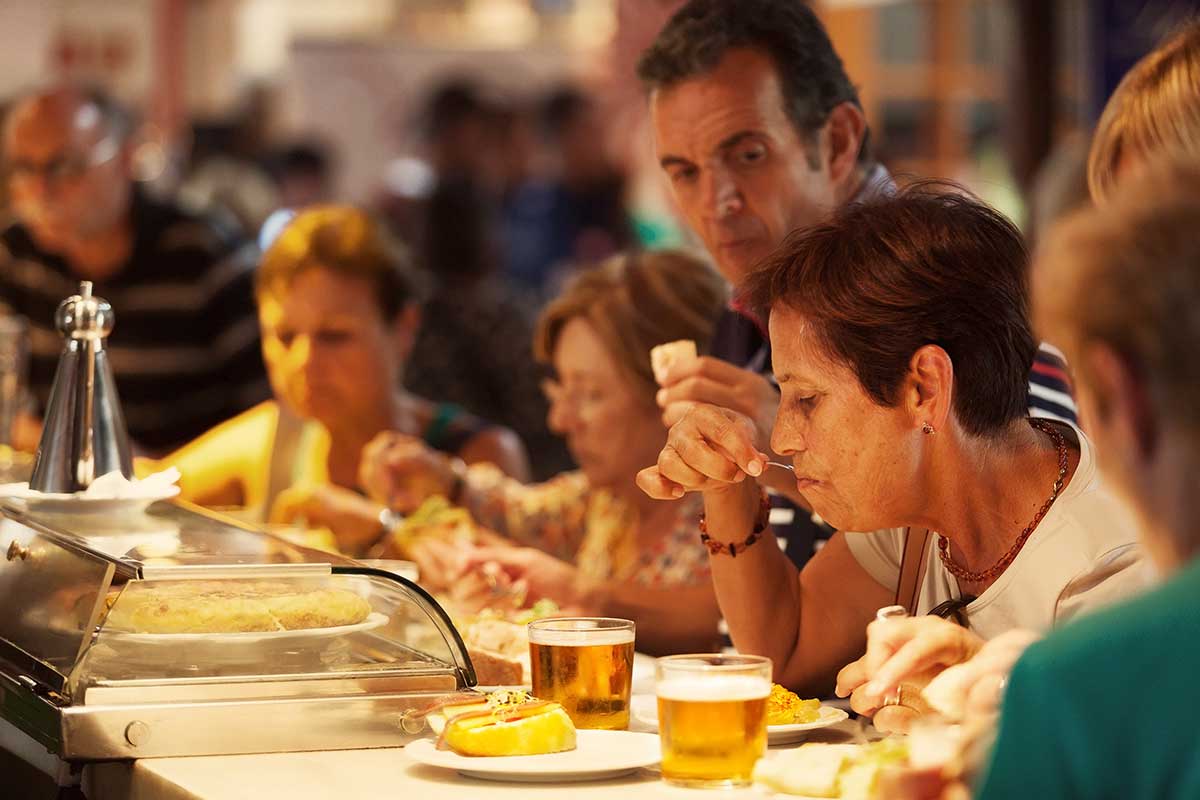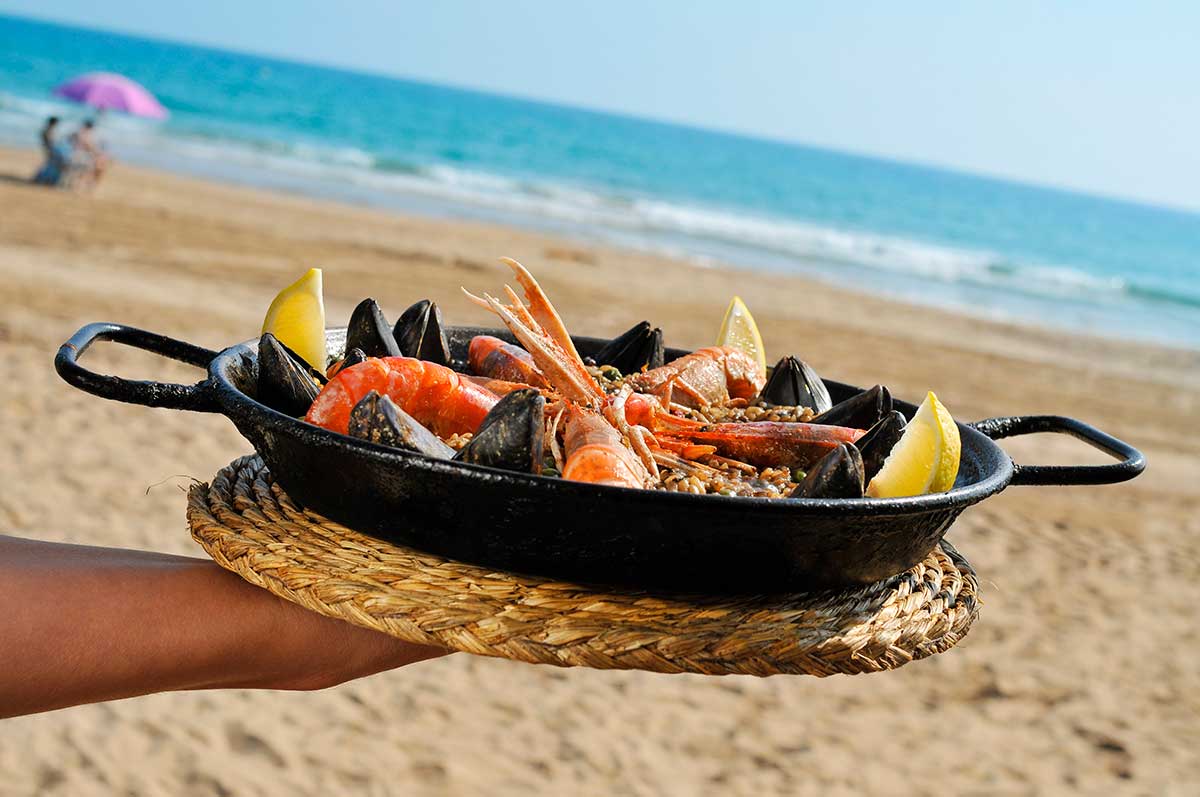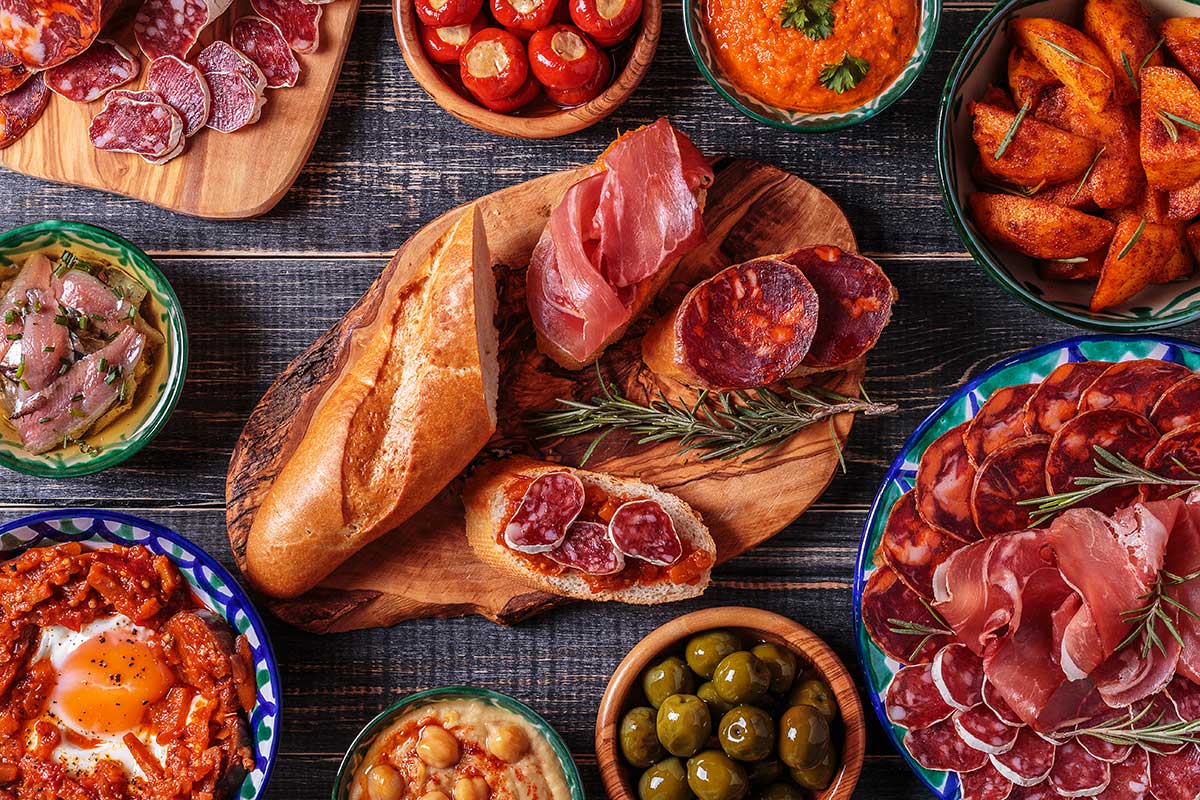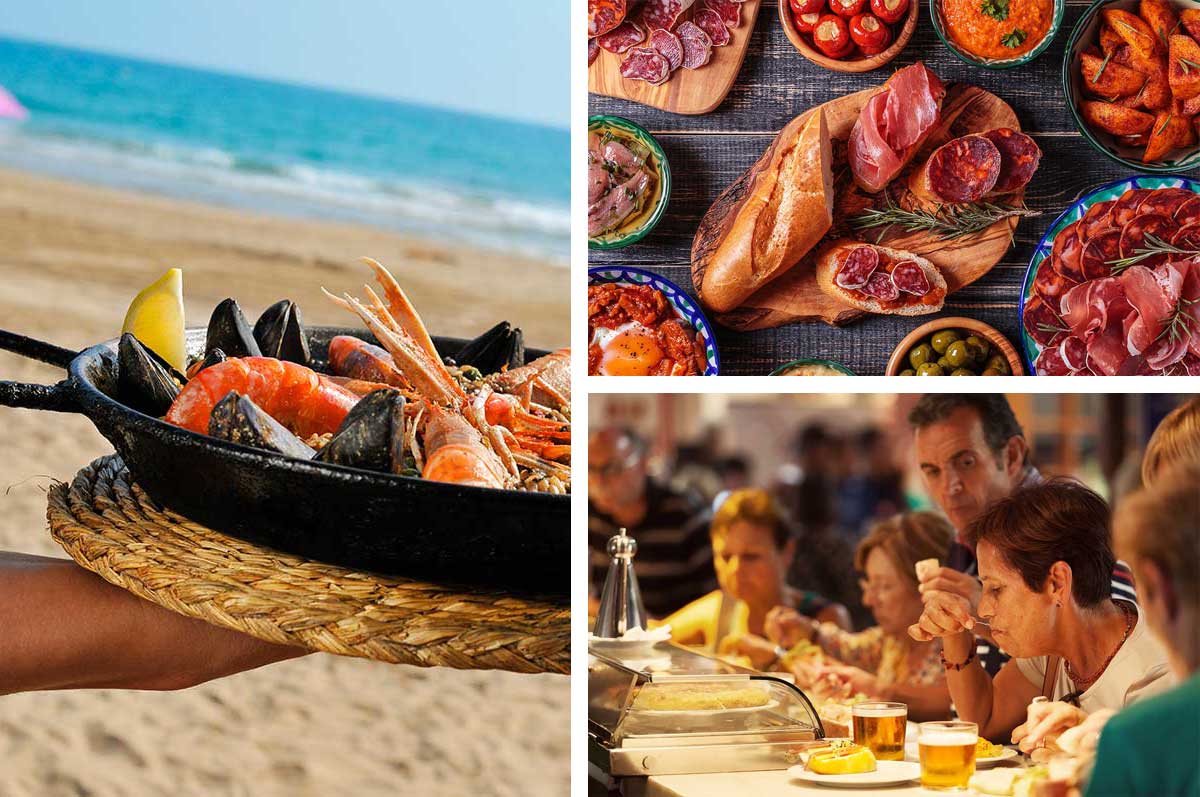Colloquial Spanish Food Vocabulary – Expressions, Words and Verbs You Should Know
You can spend years studying a language and end up having problems understanding native speakers. This is because language schools and other sources mainly teach you the formal way of a language and what is grammatically correct. However, native speakers mostly use everyday language or colloquial language. Talking about food is no different. For this reason, besides attending courses, practicing with native speakers is essential. Thus, you will learn the “real language”, all the words and expressions that people use in their daily lives.

In addition, by learning the “real language”, you are going to be able to communicate better with native speakers. In other words, you will speak their language, your conversations will feel much friendlier, and will help you connect easier with locals.
Food is very important in Spanish culture and consequently, they possess a large food related vocabulary. For this reason, if you really want to get along with someone in Spain, talk about food, they love their food! But above all, if you truly want to make them happy, speak their language colloquially!
Below, I put together some of the most common colloquial Spanish food vocabulary, including expressions, nouns and verbs.
Expressions
COMER DE GORRA
Literal translation: To eat of hat.
Meaning: To eat for free.
Example: Hoy he comido de gorra, mi jefe ha pagado la comida.
COMER COMO UN CERDO OR PONERSE LAS BOTAS
Literal translation:
- To eat like a pig.
- To put the boots on.
Meaning: To pig out.
Examples:
- Siempre como como un cerdo en casa de mi madre.
- Me puse las botas en el buffet.
ESTAR PIRIPI
Literal translation: To be piripi.
Meaning: To be drunk.
Example: Con solo dos cervezas ya estoy piripi.
ESTAR BORRACHO COMO UNA CUBA
Literal translation: To be drunk as a barrel.
Meaning: To be drunk as a skunk.
Example: Ha bebido mucho en la fiesta, está borracho como una cuba.
ESTAR DE MUERTE, ESTAR PARA CHUPARSE LOS DEDOS OR ESTAR DE RECHUPETE
Literal translation:
- To be of death.
- To be for licking the fingers.
- To be of rechupete.
Meaning:
- To be out of this world.
- To be finger lickin’ good.
- A meal is exquisite.
Examples:
- Esta paella está de muerte.
- La tortilla de patata que me hizo mi madre estaba para chuparse los dedos.
- El cocido está de rechupete.

IR/SE DE TAPAS1 OR CAÑAS2
Literal translation: To go of tapas or cañas.
Meaning: To go around the bars and have some tapas and cañas.
Example: ¡Vámonos/vamos de tapas/cañas por Marbella!
SALIR DE TAPAS OR CAÑAS
Literal translation: To go out of tapas or cañas.
Meaning: To go around the bars and have some tapas and cañas.
Example: ¿Quieres salir de tapas/cañas por Marbella?

TOMAR EL VERMUT OR VERMÚ
Literal translation: To drink the vermouth.
Meaning: To get a snack before the big meal of the day (around 2-3pm). Normally a drink with tapas.
Example: Vamos al bar a tomar el vermut.
Nouns
BOCATA
Meaning: A sandwich.
Example: Me encantan los bocatas de lomo.
BOTELLÓN
Meaning: Drinking in the street.
Example: Esos chicos siempre hacen botellón en el parque.
TAJADA
Meaning: Smashed, wasted, blotted, drunk, plastered or blacked out.
Example: Menuda tajada que lleva ese chico después de beberse toda la sangría.
TAPEO
Meaning: Eating tapas.
Example: ¡Vámonos de tapeo!
BIRRA
Meaning: A beer.
Example: Quiero una birra.
CUBATA
Meaning: A rum and coke cocktail.
Example: Prefiero un cubata a una birra.
Verbs
TAPEAR
Meaning: To eat tapas in a bar.
Example: Tapeo todos los fines de semana con mis amigos.
Final Thoughts
I encourage you to get familiar with colloquial Spanish food vocabulary to make your cultural immersion and language learning experience easier.
I advise you to not get obsessed with the way you speak a language. Normally, people during their everyday life do not really speak strictly formal, or use what is considered grammatically correct. For this reason, you also need to learn the colloquial way.
Colloquial Spanish is one part of the language I focus on in my Spanish Courses at MISS – Marbella International Spanish School. I want you to get the real experience of what it is like to talk as a Spanish speaker. In addition, make your Spanish cultural adventure much simpler and enjoyable.
Definitions
1 Small portion of some food that normally goes with a drink.
2 A cylindrical, tall and narrow glass used to serve wine or beer. However, it is generally used to refer to the beer contained in that glass. The amount is normally around 20cl.






Dejar una Respuesta
Tienes queiniciar sesión para publicar un comentario.